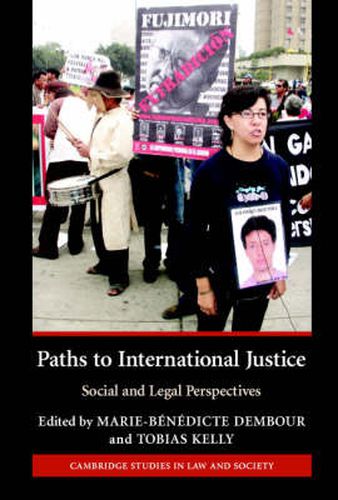Readings Newsletter
Become a Readings Member to make your shopping experience even easier.
Sign in or sign up for free!
You’re not far away from qualifying for FREE standard shipping within Australia
You’ve qualified for FREE standard shipping within Australia
The cart is loading…






This volume focuses on the everyday social relationships through which international justice is produced. Using case studies from the International Criminal Court, the European Court of Human Rights, the UN Women’s Convention Committee and elsewhere, it explores international justice as a process that takes place at the intersection of the often contradictory practices of applicants, lawyers, bureaucrats, victims, accused and others. With a sensitivity to broader institutional and political inequalities, the contributors ask how and why international justice is mobilised, understood and abandoned by concrete social actors, and to what effect. An attention to the different voices that feed into international justice is essential if we are to understand its potentials and limitations in the midst of social conflict or full blown political violence.
$9.00 standard shipping within Australia
FREE standard shipping within Australia for orders over $100.00
Express & International shipping calculated at checkout
This volume focuses on the everyday social relationships through which international justice is produced. Using case studies from the International Criminal Court, the European Court of Human Rights, the UN Women’s Convention Committee and elsewhere, it explores international justice as a process that takes place at the intersection of the often contradictory practices of applicants, lawyers, bureaucrats, victims, accused and others. With a sensitivity to broader institutional and political inequalities, the contributors ask how and why international justice is mobilised, understood and abandoned by concrete social actors, and to what effect. An attention to the different voices that feed into international justice is essential if we are to understand its potentials and limitations in the midst of social conflict or full blown political violence.